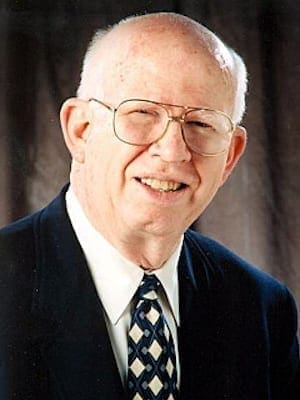The ability to communicate is a gift.
We can bless others with this gift by using it to heal, to build up and not to harm. Conversely, we can use it to tear down, to harm and to destroy relationships.
We all need and search for connectedness. We know how it feels to be in a crowd and yet feel utterly alone and isolated.
We need and want to belong. We need to touch and be touched. We can be warmed by another person’s smile or simple acknowledgement.
Good conversation, like good music or a good book, nourishes the soul. Good communication builds relationships.
Nothing says more about a person’s caring than his or her willingness to listen without judgment or interruption. Sometimes our greatest ministry is simply to be 100 percent present in the moment.
One of my most cherished books is “As a Man Thinketh” by James Allen. Allen stresses that what we think about is what we will become.
We can control our lives by controlling our thoughts. If we fill our minds with goodwill toward others, that is what we will express and demonstrate.
Don Kirkland, retired editor of the South Carolina Baptist Courier, states in his book, “Something Ventured,” that what Jesus did in all of his time not accounted for in the Bible is clear: “He went about doing good.”
Goodness was in his heart and so it expressed itself. Kirkland goes on to say that, “Our Christianity must be visible to others or it is not Christianity at all.”
My mother and my late wife had the same favorite Scripture passage: “Let the words of my mouth and the meditations of my heart be acceptable unto thee, oh God, my strength and my redeemer” (Psalm 19:14).
They both understood that what comes out of our mouths is a result of what is in our hearts. If our heart overflows with love, that is what we will speak.
Every Sunday morning, Clyde stands at the front door of our church and gives butterscotch candies to every person who enters and is willing to accept his offering.
He is greeted by broad smiles and a lot of hugs. When he is absent, everyone asks about him. Goodness overflows from him. His gesture of kindness helps create an atmosphere for worship.
Sister Sandra Makowski makes a case for kindness as a central ingredient for the ministry of good communication in her book, “The Side of Kindness”
“Could we say that saints were kind people? My guess is that kindness became their constant companion,” she writes. “It is what they carried with them when they prayed, when they worked for justice, and when they were martyred for the sake of the gospel. It became their companion in their life of prayer and the gifts that they developed in the service of others.”
The tremendous role that listening plays in the ministry of communication is expressed by Pope Francis in his book, “The Name of God Is Mercy.”
He asserts, “Mostly people are looking for someone to listen to them. Someone willing to grant them time to listen to their dramas and difficulties. This is what I call the apostolate of the ear and it is important. Very important. I feel compelled to say to confessors: talk, listen with patience, and above all tell people that God loves them.”
I asked my friend, Monty Knight, both a minister and certified counselor, “How do you talk to God?”
“Mitch,” he said, “a much more important question is how do I listen to God?”
When Mother Teresa was asked how she talked to God, she answered. “I mostly listen.” When she was then asked, “What does God say?” she replied, “He mainly listens.”
There are times when there are no words capable of conveying what is in our hearts, but there are no times when being 100 percent present with another is not effective.
Raymond DeSchazo, former professor at Mars Hill University, was fond of saying, “The way you know when you really love another person is when you can be in a room together for hours and neither of you says a word. Just being present is enough.”
For communication to be effective and work its magic as ministry, what we do and what we say must be congruent. There must be no conflict between our words and our actions.
Active listening is an essential behavior for showing concern and compassion for the other. When we are too busy or too distracted to listen, we demonstrate a lack of concern. We can change this perception by being 100 percent present in the moment with our communication partner.
Never underestimate the influence of an encounter no matter how brief it might be. It leaves an impression for good or bad. A simple act of kindness has the power to transform lives. An act of grace never goes unnoticed.
 Mitch Carnell is a consultant specializing in effective communication. He and his wife, Carol, are members of First Baptist Church of Charleston, South Carolina. He blogs at MitchCarnell.com and ChristianCivility.com
Mitch Carnell is a consultant specializing in effective communication. He and his wife, Carol, are members of First Baptist Church of Charleston, South Carolina. He blogs at MitchCarnell.com and ChristianCivility.com
A member of First Baptist Church of Charleston, South Carolina, he was the author of “Our Father: Discovering Family.” Mitch’s writings can be found at MitchCarnell.com.

